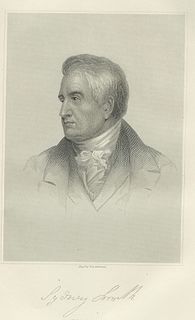A Quote by Harry S Truman
You can never get all the facts from just one newspaper, and unless you have all the facts, you cannot make proper judgements about what is going on.
Related Quotes
[The scientist] believes passionately in facts, in measured facts. He believes there are no bad facts, that all facts are good facts, though they may be facts about bad things, and his intellectual satisfaction can come only from the acquisition of accurately known facts, from their organization into a body of knowledge, in which the inter-relationship of the measured facts is the dominant consideration.
What are the facts? Again and again and again – what are the facts? Shun wishful thinking, ignore divine revelation, forget what “the stars foretell,” avoid opinion, care not what the neighbors think, never mind the unguessable “verdict of history” – what are the facts, and to how many decimal places? You pilot always into an unknown future; facts are your single clue. Get the facts!
I don't like realism. We already know the real facts about li[fe], most of the basic facts. I'm not interested in repeating what we already know. We know about sex, about violence, about murder, about war. All these things, by the time we're 18, we're up to here. From there on we need interpreters. We need poets. We need philosophers. We need theologians, who take the same basic facts and work with them and help us make do with those facts. Facts alone are not enough. It's interpretation.
Facts are neutral until human beings add their own meaning to those facts. People make their decisions based on what the facts mean to them, not on the facts themselves. The meaning they add to facts depends on their current story … facts are not terribly useful to influencing others. People don’t need new facts—they need a new story.
Let us, rather, gather facts, all the facts, regardless of aesthetic appeal or theoretical social worth, and spread those facts before us not as the soothsayer spreads the innards of a turkey but as a newspaper spreads its columns. Let us be journalists, then. And like all good journalists, we shall present our facts in an order that will satisfy the famous five W's: wow, whoopee, wahoo, why-not and whew.
There's a difference between being ignorant and being stupid... For me, an ignorant person is someone who makes the wrong decision or a bad choice because he or she does not have the proper facts. If you give that person the facts and the proper information you have alleviated that ignorance, and they make the right decision.

































